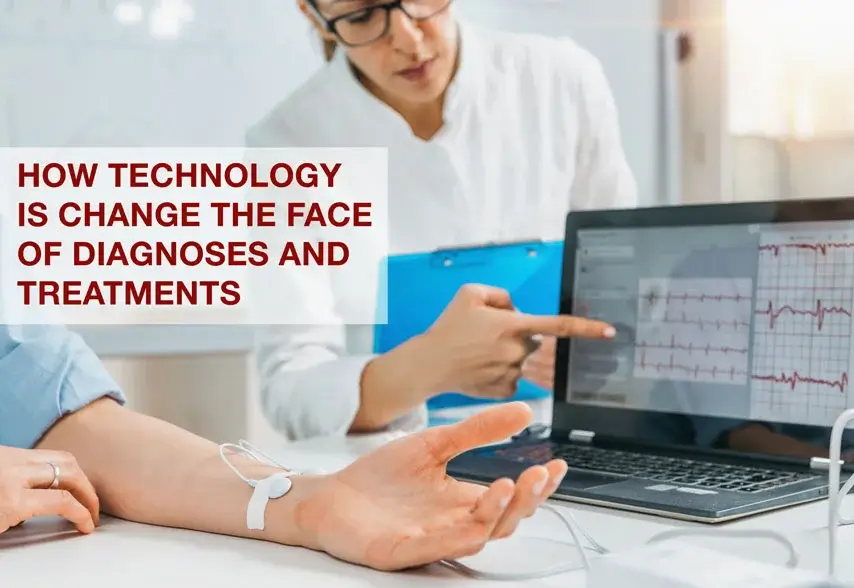Technology has revolutionized the way we live, work, and interact with each other. The healthcare industry is no exception to this trend. Over the past few decades, technology has transformed the healthcare sector in ways that were once unimaginable. From electronic health records to telemedicine, technology has made healthcare more efficient, accessible, and effective. In this article, we will explore the various ways in which technology has changed healthcare.
Electronic Health Records (EHRs)
One of the most significant changes that technology has brought to healthcare is the adoption of electronic health records (EHRs). EHRs are digital versions of patients’ medical records that can be accessed by healthcare providers from anywhere at any time. EHRs have replaced paper-based medical records, which were often difficult to read and prone to errors.
EHRs have several advantages over paper-based records. They allow healthcare providers to access patients’ medical histories, test results, and other important information quickly and easily. This helps providers make more informed decisions about patient care. EHRs also reduce the risk of errors caused by illegible handwriting or lost records.
However, EHRs also have some drawbacks. They can be expensive to implement and maintain, and some providers may be resistant to change. Additionally, there are concerns about the privacy and security of electronic health records. Despite these challenges, EHRs have become an essential part of modern healthcare.
Telemedicine
Another way in which technology has changed healthcare is through telemedicine. Telemedicine refers to the use of technology to provide healthcare services remotely. This can include video consultations with doctors, remote monitoring of patients’ vital signs, and even robotic surgery.
Telemedicine has several benefits. It can improve access to healthcare for people who live in remote or underserved areas. It can also reduce the need for patients to travel to healthcare facilities, which can be especially helpful for those with mobility issues or chronic conditions. Telemedicine can also be more cost-effective than traditional in-person care.
However, telemedicine also has some limitations. It may not be suitable for all types of medical conditions, and some patients may prefer face-to-face interactions with their healthcare providers. Additionally, there are concerns about the quality of care provided through telemedicine. Despite these challenges, telemedicine has become an increasingly popular way to deliver healthcare services.
Medical Devices and Wearables
Technology has also led to the development of new medical devices and wearables that can help people manage their health. These devices can track vital signs, monitor blood sugar levels, and even detect early signs of disease.
Medical devices and wearables have several benefits. They can help people take a more proactive approach to their health by providing real-time feedback on their health status. They can also help healthcare providers monitor patients remotely and detect potential health problems before they become serious.
However, medical devices and wearables also have some limitations. They can be expensive, and some people may not be comfortable using them. Additionally, there are concerns about the accuracy and reliability of some devices. Despite these challenges, medical devices and wearables have the potential to revolutionize the way we manage our health.
Artificial Intelligence (AI)
Finally, technology has led to the development of artificial intelligence (AI) in healthcare. AI refers to the use of computer algorithms to analyze large amounts of data and make predictions about patient outcomes.
AI has several benefits in healthcare. It can help healthcare providers make more accurate diagnoses and develop more effective treatment plans. It can also help identify patients who are at risk of developing certain conditions, allowing for early intervention.
However, AI also has some limitations. It requires large amounts of data to be effective, which can be a challenge in some healthcare settings. Additionally, there are concerns about the ethical implications of using AI in healthcare, such as the potential for bias in algorithms.
Conclusion
Technology has transformed the healthcare industry in ways that were once unimaginable. From electronic health records to telemedicine, medical devices and wearables, and artificial intelligence, technology has made healthcare more efficient, accessible, and effective. While there are challenges associated with these technologies, they have the potential to revolutionize the way we manage our health. As technology continues to evolve, we can expect even more exciting developments in healthcare in the years to come.



